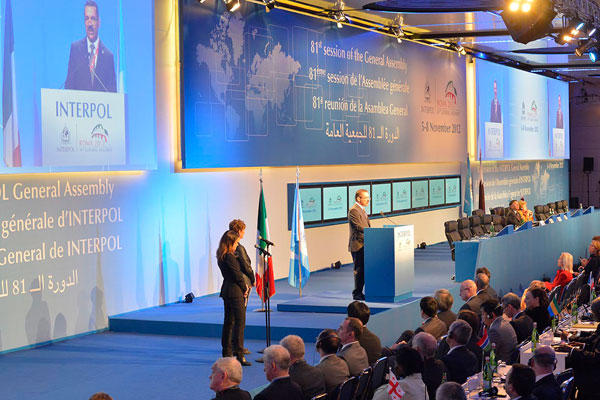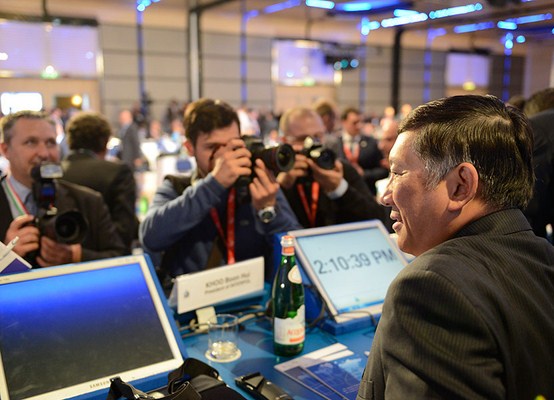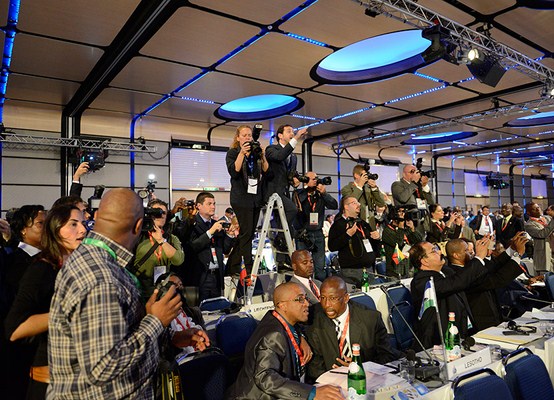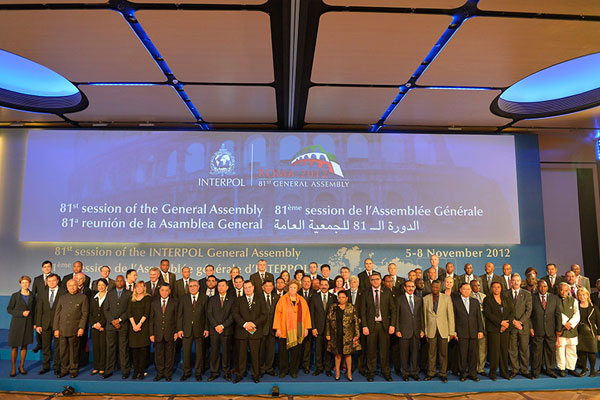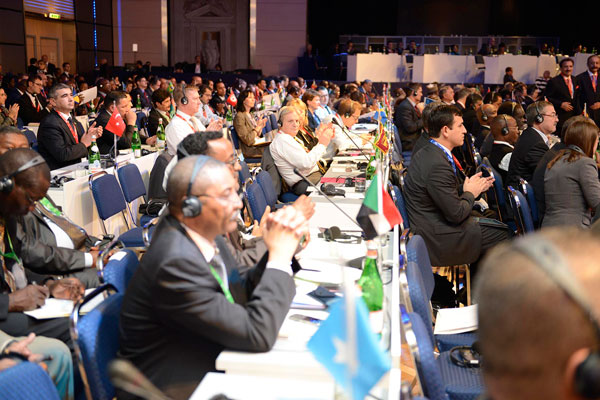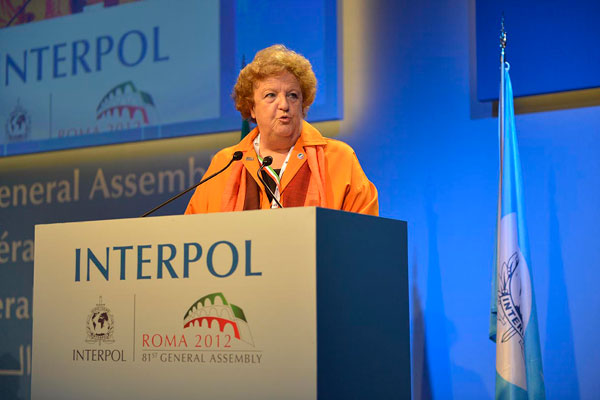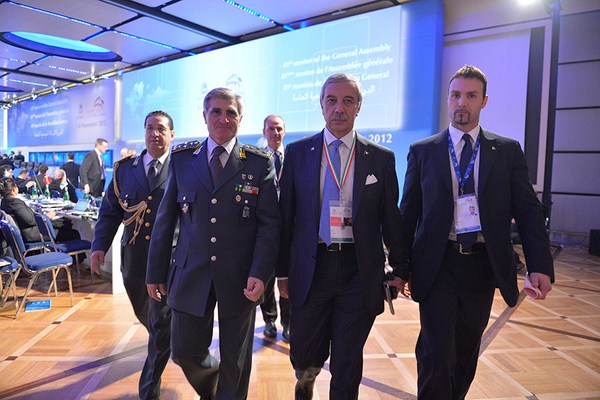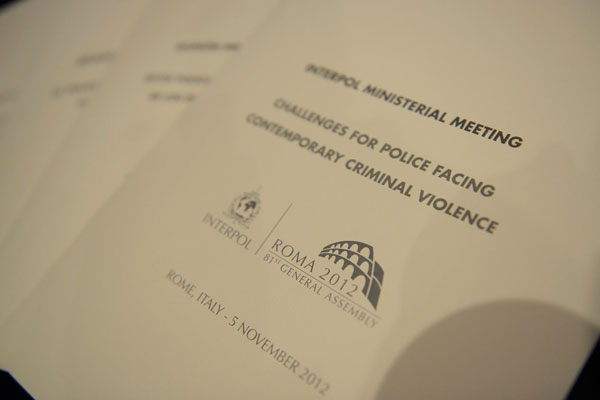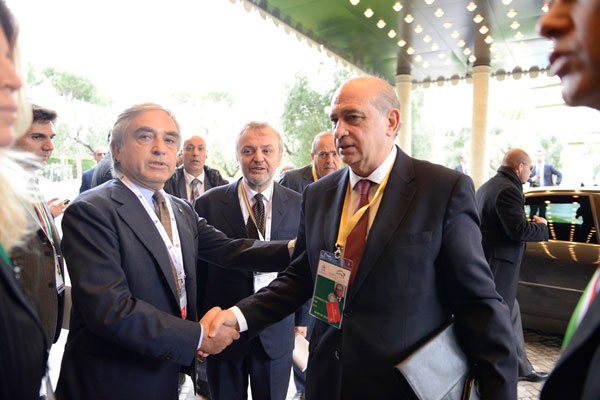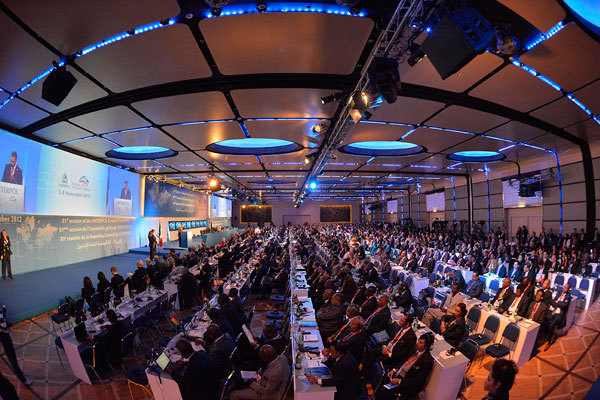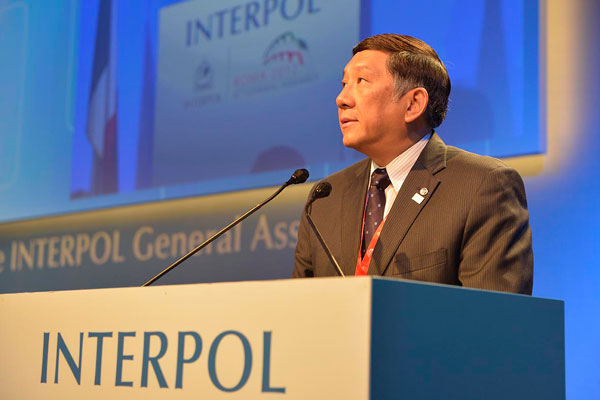ROME, Italy – In the largest-ever meeting of its kind, INTERPOL has brought together close to 100 Justice, Home Affairs and Security Ministers from around the globe to focus on criminal violence issues ranging from human trafficking to terrorist activities.
The Ministerial meeting, which opened today and marks the beginning of the four-day (5 – 8 November) 81st INTERPOL General Assembly with the theme ‘Challenges for Police Facing Contemporary Violence’, will serve as a forum for more than 1,000 delegates from some 170 countries to identify viable strategies to effectively prevent, repress and respond to the changing modes of contemporary criminal violence.
The ministers will look at critical questions including what factors have led to the expansion and aggravation of criminal violence, what skills and strategies can better prepare their countries to combat violent crime, whether existing legal frameworks meet law enforcement’s needs and what partnerships or cooperative efforts can sustainably counter criminal violence today.
In her opening remarks, Italian Minister of Interior Annamaria Cancellieri said that combating crime was a very complex issue, with states limited by national jurisdictions while criminals are not.
“Crime can expand beyond national borders and identify opportunities to escape law enforcement, and that is why international cooperation is required. In this respect, INTERPOL as a relentless driver of international police cooperation is the one and only means to defend citizens from criminal threats which countries cannot achieve alone,” said Minister Cancellieri.
To this end, the Italian Minister called on the international community to help ‘step up’ international police cooperation and help INTERPOL expand its operations so that all police officers have access to its global services against transnational crime.
INTERPOL President Khoo Boon Hui said the Ministerial meeting would provide a platform for greater global cooperation and action against transnational criminal violence at a time when it was expanding and profiting from developments in technology and economic instability.
“In a world where borders can be the best weapon in the hands of criminals, we now see countries worldwide choose cooperation across continents, languages and cultures to better identify and counter security threats,” said Mr Khoo.
INTERPOL Secretary General Ronald K. Noble outlined the operational challenges presented by contemporary violence and experienced by many INTERPOL member countries.
“While our strategies have immensely evolved over time, the threats we face today remain formidable because criminal violence constantly changes shape. The changing nature of criminal violence is exacerbated because an extremely violent event today in one country can easily and quickly be felt in other countries, with violence spreading like wildfire,” said Mr Noble.
In this respect the Ministerial gathering heard that the global intensity, speed and frequency of today’s criminal violence was ‘unprecedented’, with every year an estimated 500,000 people dying as a result of lethal violence and nine out of 10 of these deaths resulting from crime and terrorism, not conflicts.
“It is violence that cannot be contained by traditional means, and which brought us all into a new era. It is therefore time for us to share experiences and ideas for how to respond to these new challenges in repelling or reducing criminal violence within our member countries,” said the INTERPOL Chief.
“We will take your experience, your insights and share them with all of our 190 member countries and their police services. We know that the police will have an important role to play in any solution developed by you. For its part, INTERPOL will develop new tools and services, as we support your police and law enforcement authorities in the field around the clock.”
“We will work with you to build their capacity through training and enhance their infrastructure to make sure they are always connected in real time with each other – and to ensure that whenever criminal violence will strike or will threaten your population, they won’t be alone against it,” Secretary General Noble told the Ministers.
A joint Ministerial declaration will be issued at the conclusion of the day’s meeting to identify a course of action which can be adapted to the unique security situations of cities, nations and regions, supported by greater shared intelligence and increased use of INTERPOL’S global tools and services.




